Each person, after purchasing their first gun, is overwhelmed by the sheer volume of accessories, cleaning agents, holsters, belts, pouches and other equipment that is “absolutely necessary” for firing and servicing weapons. There’s lots of questions floating around. What are jags used for? How to use cleaners? What are the best gun oils and their substitutes? Today we will dispel some myths about cleaning it.
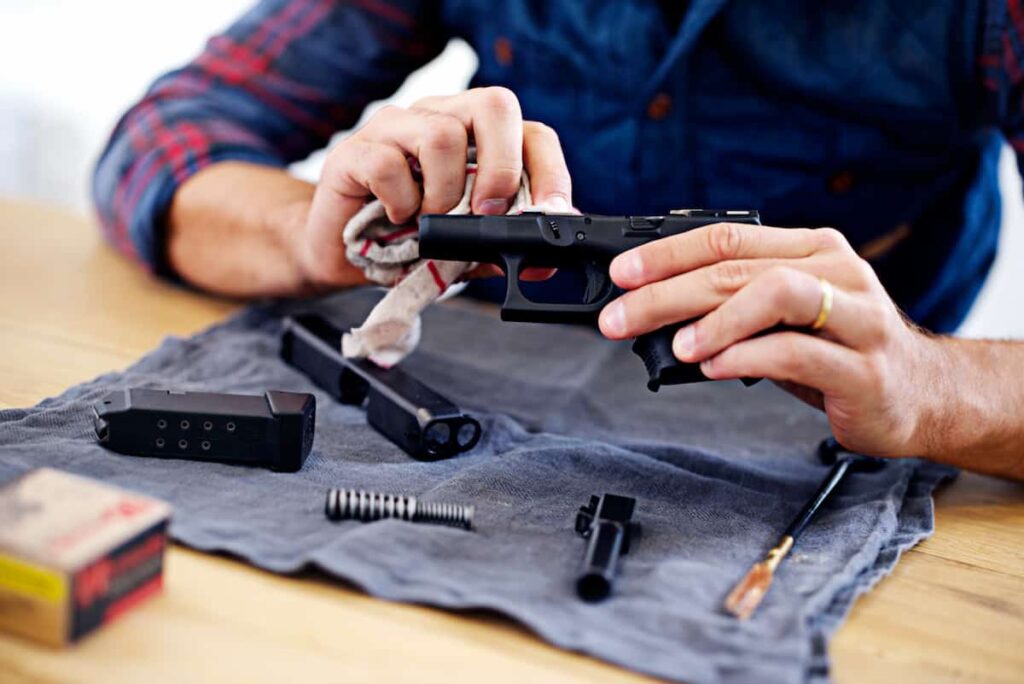
Gun cleaners
There are a lot of companies on the market that produce agents dedicated to cleaning weapons. They are all more or less effective. The question is whether they are worth the money. In most cases, the answer is no. Typically, agents described as “gun cleaning oil or gun cleaner” can be replaced with industrial chemicals from the automotive industry.
However, if you don’t mind your money and want a proven kit specially made for firearms, you will need a penetrator, degreaser, oil and grease. You will find out which company to choose on countless forums and groups on social media or in the trade press. It is worth looking at the good old CLP gun cleaner (Cleaner, Lubricant, Protectant, any brand) it’s an all in one type of situation that’s ok at everything. And you don’t need to ask how to use CLP – it’s in the name.
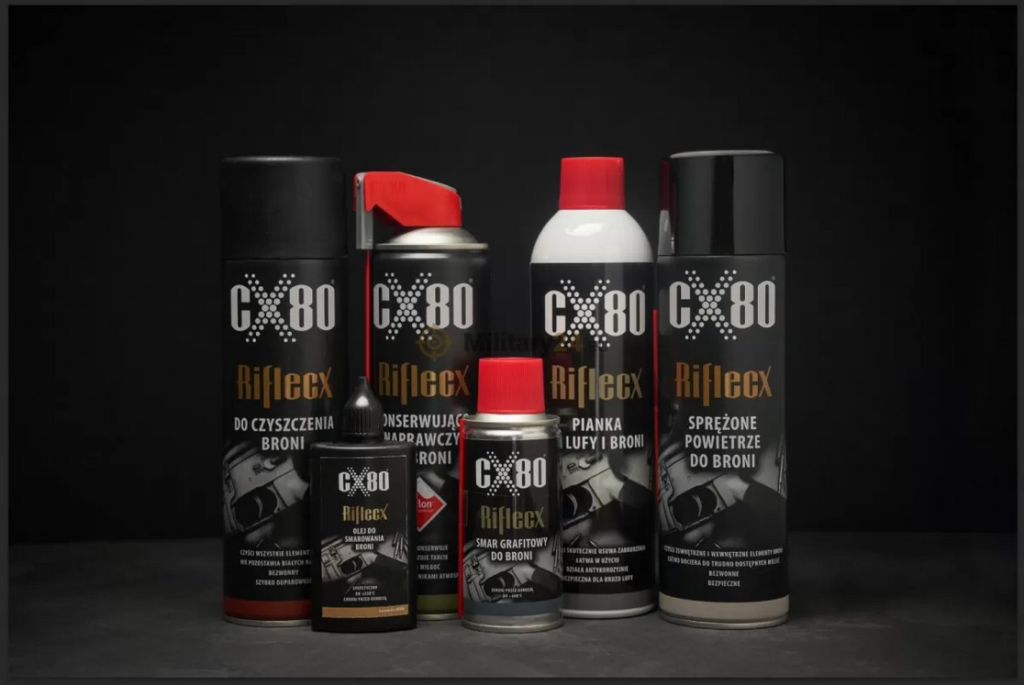
Rifle, pistol or shotgun cleaning kit
There are also an infinite number of weapon cleaning kits on sale, with a wide range of tools, brushes, jags, wipes, q-tips, swabs, cleaners, cords, scratchers and other more or less necessary equipment. Matched to the caliber and type of firearms, or more complex – universal ones. Cleaning kits for pistols, rifles, shotguns … at the right price, of course. Is all this necessary? Again – in most cases you can assemble such a set yourself, better and cheaper.
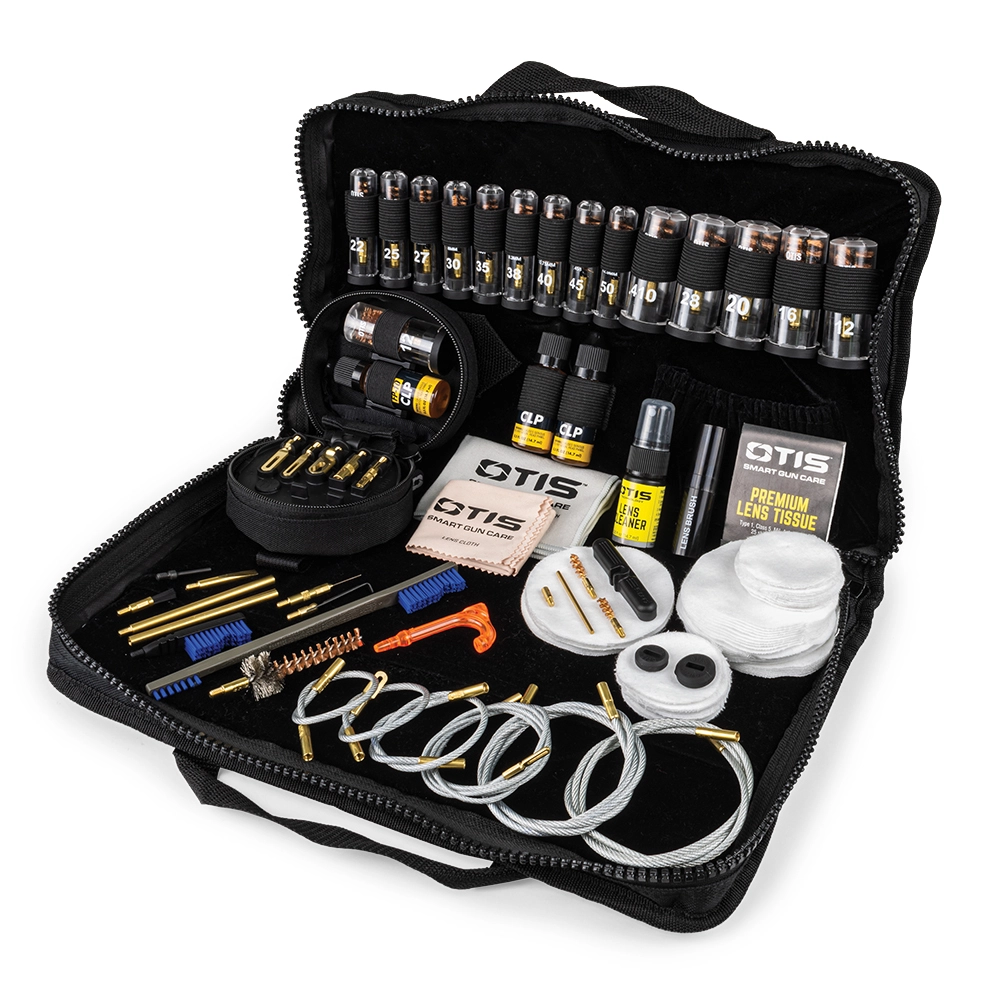
How to clean a gun without a cleaning kit?
Sometimes you can find yourself in a situation when you need to clean your gun without a cleaning kit. In that case, an old toothbrush, and some rags are your cleaning supplies. For a degreaser you can use dish soap mixed with water. And you can lubricate a gun with motor oil or even cooking oil. It’s far from ideal but this method will work when there’s no other way.
But take into consideration, that most guns, especially ones designed for combat, don’t need that much cleaning. They will work unless they’re full of sand or mud. What they need is lubrication, it’s hard to get them so dirty that they won’t shoot anymore.
Do it yourself
The basic cleaning and care kit for any weapon (pistols, rifles, shotguns, whatever …) should include a set of small brushes – brass, steel and nylon. They can be purchased at any hardware store. They are the size of a toothbrush and a set of three costs as much as a 4-pack of beer. Three hardnesses will allow you to choose the right one for the surface to be cleaned and the stubbornness of dirt on it.
Another handy thing from the hardware store is a set of three picks, straight, 90-degree bent, and hooked. They will get where the brush does not reach or the dirt is too hard. They are also useful when working with more complicated mechanisms.
When a man thinks about cleaning a weapon, a cleaning rod with a jag immediately comes to his mind. This one is worth having, for example, to break out the cartridge case stuck in the cartridge chamber. However, it is unnecessary to clean the weapon. Cleaning cords replaced him. The weapon cleaning cord is a nylon cord with a weight, attached to a thicker cord with brass brushes. It works much more efficiently than the rod with a cleaning jag and you can safely buy it on a popular Chinese portal – we checked. It must be remembered that the cord for cleaning a weapon must be matched to its caliber.
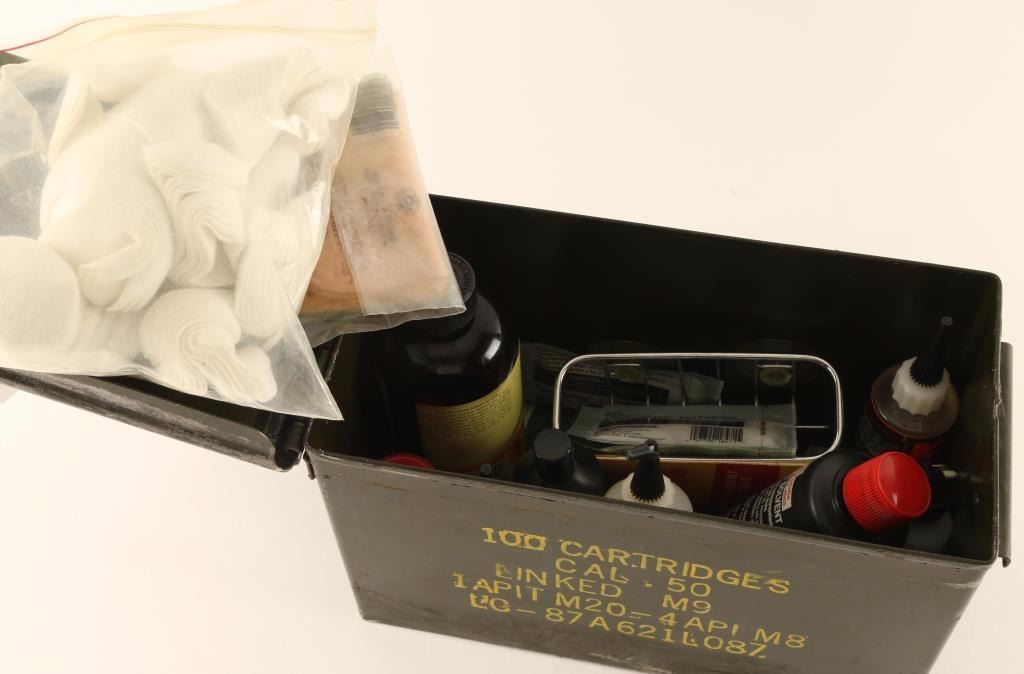
Substitutes of “professional” cleaning products
In case of cleaning products, the first thing you will need is a penetrator. Here we did not manage to find a replacement and you actually have to buy one “for weapons”. It causes the softening and dissolution of the remains of burnt gunpowder, lead and brass deposits, etc. This makes it much easier to extract the pollutants later.
The second thing is the remover. It is successfully replaced by a spray-can brake cleaner, available in any automotive store. It is practically the same solution, but several times cheaper. Its task is to dissolve dirty greases and oils applied the previous time.
Next is oil. This one comes in handy in two densities, loose and thick. Depends on the season. If we plan to shoot in very low temperatures – we use thin oil and vice-versa. “Professional oils for weapons” can be replaced by engine oil (any) and gear oil (also any).
One last product you may need is grease. It works well in weapons that will make long passes between cleanings. It stays on moving parts longer and withstands heat better. A white lithium grease can be recommended here.
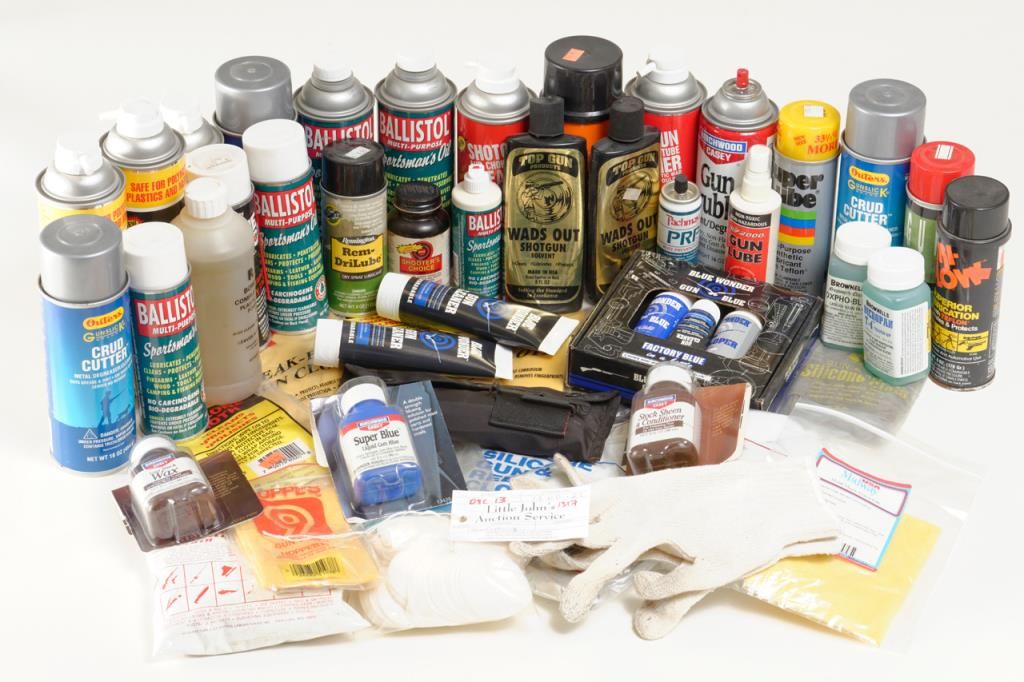
Cleaning and maintenance process
The way to clean any firearm is always the same. First, before cleaning a pistol or any other gun make sure that its completely unloaded and that there is no ammunition anywhere in the vicinity. Then dismantle the weapon for cleaning. The extent to which it needs to be disassembled depends on how dirty it is, how long ago you cleaned it and how much you want to clean it. Contrary to popular belief, each square millimeter of a weapon does not have to shine for it to function properly and not to be eaten by corrosion.
After disassembling the weapon, spray its entire interior, mechanisms, nooks and crannies and the bore with a penetrator. It will soften or dissolve any deposits. It takes time, so it’s a good idea to leave it alone for 10-20 minutes.
The next step is to thoroughly scrub everything with brushes, scrape out dirt from the nooks and crannies with picks, and finally rinse with a grease remover that will wash away the mixture of sediment, carbon deposit, old oil and penetrator from the weapon. After the remover has evaporated, you need to make sure that nothing has escaped our attention and, if necessary, correct it.
Finally, the surface of the weapon needs to be lubricated and protected. In the places where the mechanisms interact with each other, we use appropriate oil or grease, and the whole thing is wiped with a cloth with a little oil, and finally we wipe it almost dry, leaving a very thin layer protecting against moisture.
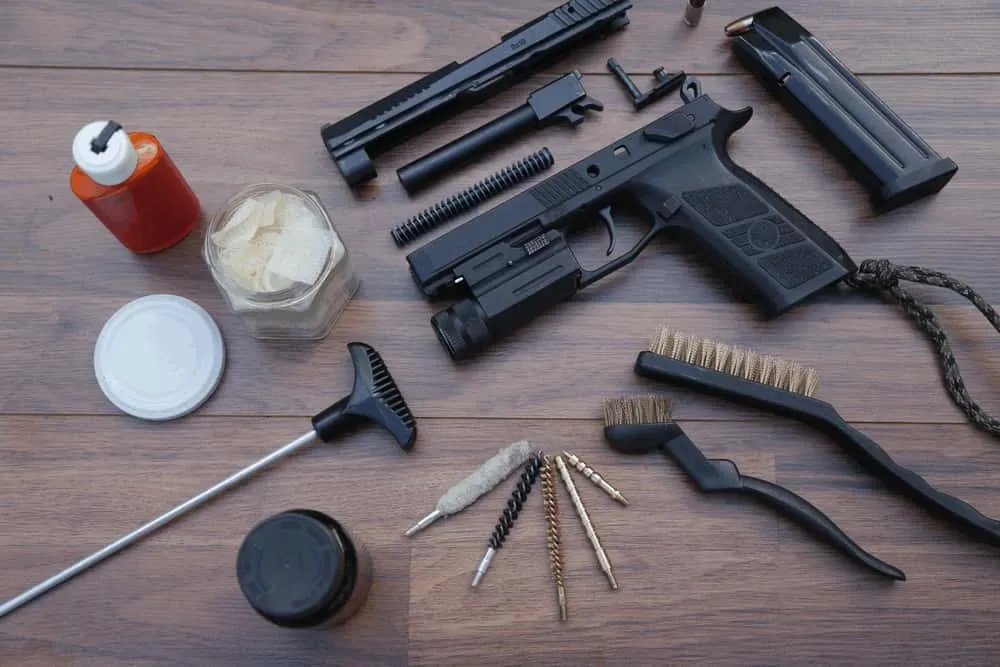
Summary
As you can see, it does not matter if you clean hunting weapons, or if we are talking about cleaning handguns – a pistol or a revolver, black powder or a combat rifle. The rules are the same, the cleaning agents for the weapons are the same. It can be done cheaper or more expensive, better or worse


